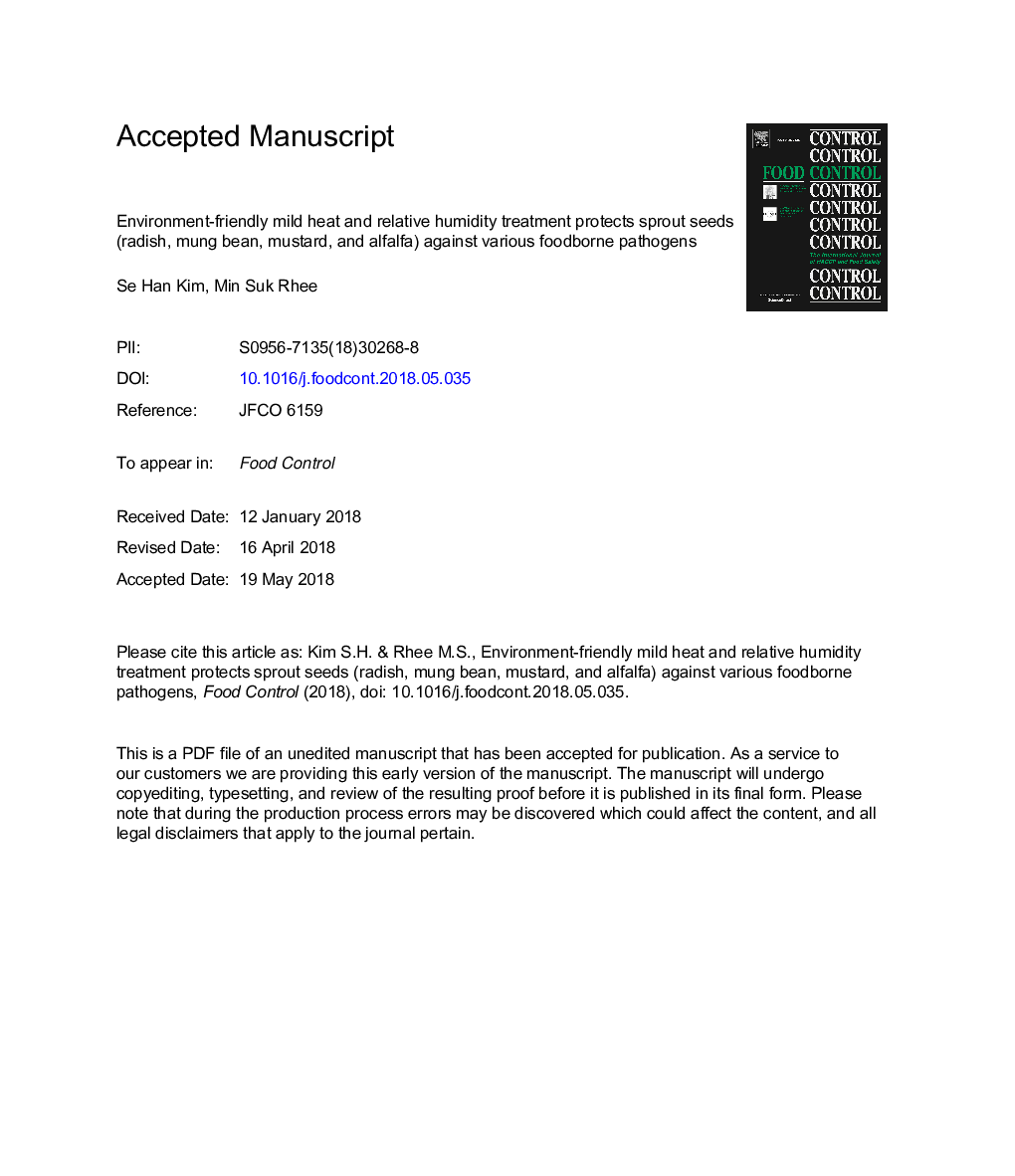| کد مقاله | کد نشریه | سال انتشار | مقاله انگلیسی | نسخه تمام متن |
|---|---|---|---|---|
| 8887685 | 1628371 | 2018 | 23 صفحه PDF | دانلود رایگان |
عنوان انگلیسی مقاله ISI
Environment-friendly mild heat and relative humidity treatment protects sprout seeds (radish, mung bean, mustard, and alfalfa) against various foodborne pathogens
ترجمه فارسی عنوان
حفاظت از گرما و رطوبت نسبی محیط زیست، حفاظت از دانه های جوانه (تربچه، گوشت گوزن، خردل و یونجه) در برابر انواع پاتوژن مواد
دانلود مقاله + سفارش ترجمه
دانلود مقاله ISI انگلیسی
رایگان برای ایرانیان
کلمات کلیدی
موضوعات مرتبط
علوم زیستی و بیوفناوری
علوم کشاورزی و بیولوژیک
دانش تغذیه
چکیده انگلیسی
The utility of a novel technology based on heat and relative humidity (RH) was examined; the method was used to treat experimentally contaminated radish, mung bean, mustard, and alfalfa seeds. Seeds were inoculated with high (ca. 7 log CFU/g) or low (ca. 3 log CFU/g) levels of Escherichia coli O157:H7, Salmonella Typhimurium, and Listeria monocytogenes, and treated at 65â¯Â°C/40% RH for 8, 15, or 22â¯h. The 15â¯h treatment reduced the numbers of E. coli O157:H7 and S. Typhimurium on all seeds to below the detection limit (10â¯CFU/g), whereas longer treatment (up to 22â¯h) was needed for L. monocytogenes. At 8â¯h, L. monocytogenes on mung bean was significantly less susceptible to combined treatment that L. monocytogenes on other seeds (Pâ¯<â¯0.05). Overall, the 22â¯h treatment eliminated E. coli O157:H7 from radish and mustard seeds, and L. monocytogenes from mustard and alfalfa seeds; the treatment had no significant effect on the viability of radish, mung bean, or alfalfa seeds (Pâ¯>â¯0.05). However, the mustard seed viability fell by about 9.8%. These findings indicate that the environmentally friendly technology is a wide spectrum method of decontaminating sprout seeds, with little concomitant reduction in seed quality.
ناشر
Database: Elsevier - ScienceDirect (ساینس دایرکت)
Journal: Food Control - Volume 93, November 2018, Pages 17-22
Journal: Food Control - Volume 93, November 2018, Pages 17-22
نویسندگان
Se Han Kim, Min Suk Rhee,
